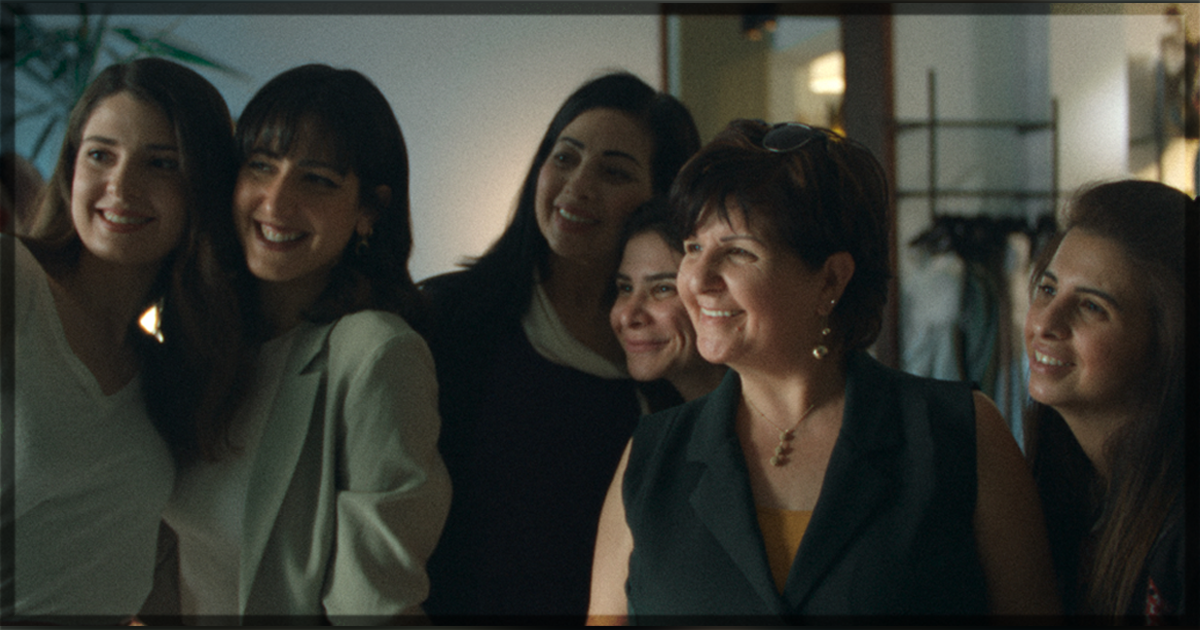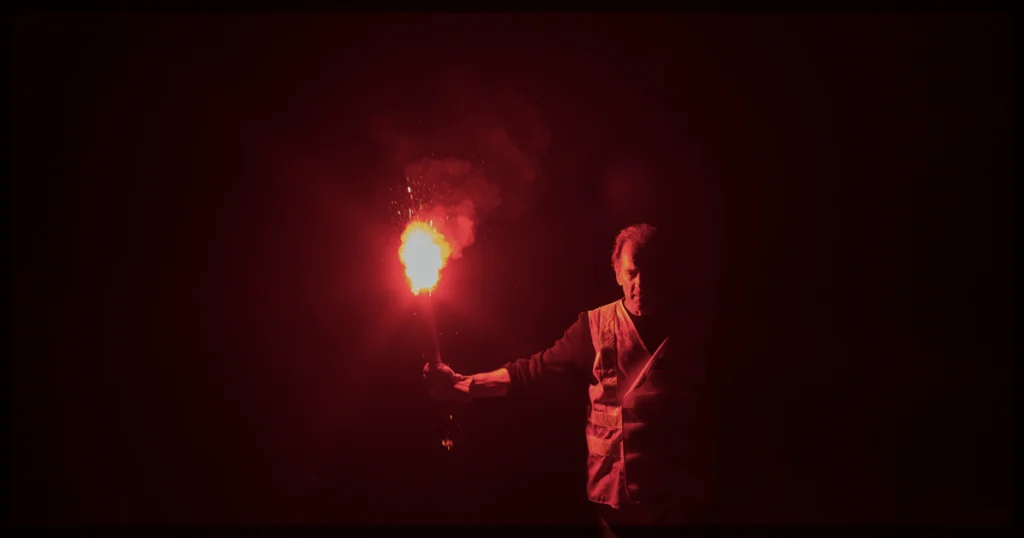Happy Holidays is possibly as apolitical as a Palestinian movie can get, which is to say not very. Writer-editor-director Scandar Copti, who won the Orrozonti prize for best screenplay at this year’s Venice Biennale, worked with non-professional actors in an non-linear fashion to depict a very bad few months in one middle-class family’s life, the stretch of time between Purim and Israeli Memorial Day. The sarcastic title is in reference to their problems, which are all entirely their own faults. The war shown here is the difference between someone’s public and private selves, and what happens when the dissonance between the two becomes too unpleasant for others in the family to ignore.
The family consists of fearsomely controlling mother Hanan (Wafaa Aoun), businessman father Fouad (Imad Hourani), and three adult children: Rami (Toufic Danial), Leila (Sophie Awaada) and Fifi (an outstanding Manar Shebab). They have a large family house in Haifa, where Leila is shortly to be married, but Fifi is a college student in Jerusalem, where she gets injured in a car accident on her way home from a party. The accident becomes important because the insurance claim might help the family out of a financial pinch. Through the family business Fouad embezzled 120,000 shekels (approximately $32,000) that needs to be repaid ASAP or their house will have to sold. Fouad will go to prison, too, which risks both Leila’s wedding and Fifi’s schooling. And as if that wasn’t enough Rami has impregnated his secret Jewish girlfriend Shirley (Shani Dahari) with a baby that no one but Shirley wants. Oh, and Fifi has an even bigger secret than that.
Rami’s stalking of and threatening behavior to Shirley becomes secondary to his introduction of his friend Walid (Raed Burbara) to Fifi, and how Walid and Fifi’s relationship spirals around Fifi’s secret. There’s even a detour into the life of Shirley’s sister Miri (Meirav Memoresky), who is determined she will not become the aunt of a mixed-race baby. Walid is a doctor and Miri an allergy nurse, but them being medical professionals doesn’t seem to make a difference to the ethics of their personal lives. And over it all is Hanan, a steamroller of a woman who simply ignores all dissent with withering pressure and extraordinary insults until she gets what she wants. And in case that wasn’t enough either: Fifi has a part-time job as a kindergarten aide, in a school where the other teachers and students are all Jewish, and the patriotic class projects involving the Israeli army are shown from Fifi’s slightly different point of view. She keeps her mouth shut to keep her job, of course.
It certainly is fascinating to see what life is like for a Palestinian family inside Israel, and how their ordinary lives are both intertwined with and largely separate to mainstream Israeli society. The whole family speaks Hebrew as well as Arabic, though it’s made clear the Jewish characters are Hebrew-speaking only. It’s Fifi who has to do the most code-switching, which is something that her siblings resent and her parents think was a mistake. They should have kept her at home where she was more easily controlled. Of course good girl Leila is making an escape too, just of a quieter and more socially acceptable kind.
The depictions of the casual sexism and racism swirling around Fifi (and Shirley) are the movie’s point, of course, not that it makes it any easier to take. The fact that the family barely speaks to Fouad about prison-worthy crimes while policing the adult Fifi’s clothes and makeup feels sadly every day. The inclusion of Miri’s story and actions also makes it clear these problems are not contained to this one family, or one side of society here. The final sequence is a straight lift from The Worst Person in the World and ends the movie on an expansive note the rest of the film is missing. It would have been very interesting if the film had granted itself more space and scope to breathe. As it is, Tim Kuhn’s camera largely follows the actors closely, filming arguments in outdoor cafes or cars with an over-the-shoulder perspective. We’re trapped in the conversation too, sometimes repeatedly, as different sequences are repeated from multiple perspectives, so we get all the layers of what’s going on here. And as the literal crimes of the men become secondary to the sexual secrets of the women, we realise this kind of story is not unique to Palestine, but could be set almost anywhere in the world. And yet its fresh perspective on a miserable old story makes Happy Holidays a valuable movie that will open minds in more ways than one. Let’s hope the prize from the Biennale will grant this movie as wide an audience as possible.
Happy Holidays recently screened at the Venice International Film Festival.
You might also like…
‘The Quiet Son’ Movie Review (Venice)


